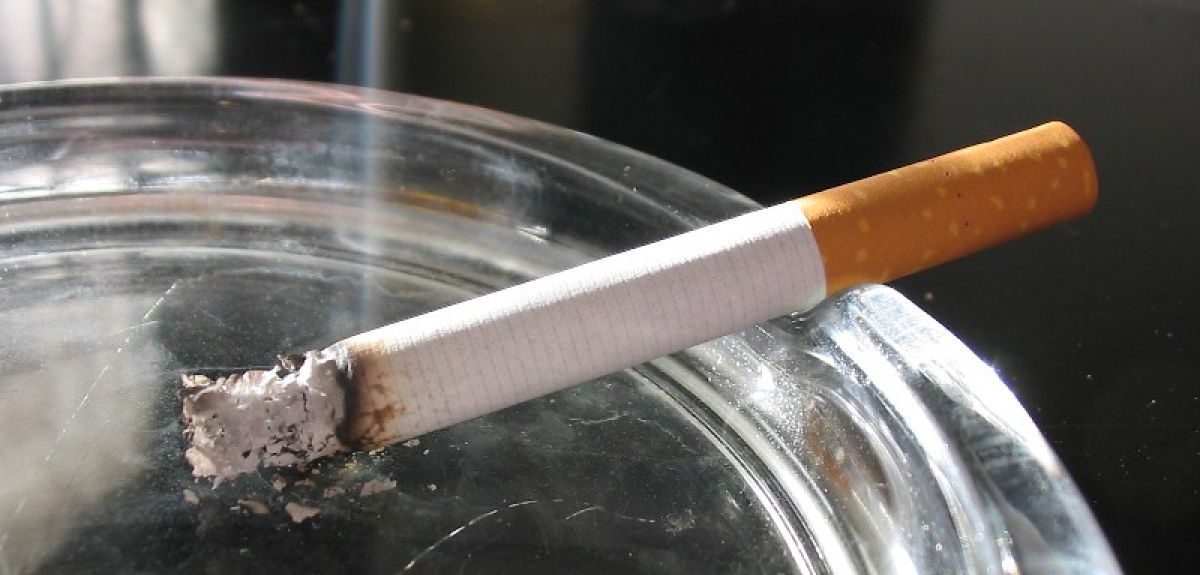
Triple tobacco tax to prevent 200 million early deaths worldwide
Tripling the tax on tobacco would cut smoking worldwide by a third and prevent 200 million early deaths this century, according to leading researchers writing in the New England Journal of Medicine.
Professor Sir Richard Peto of Oxford University and Professor Prabhat Jha of the University of Toronto say that boosting the tax by a large fixed amount per cigarette would encourage people to quit smoking altogether rather than switch to a cheaper brand, and would help stop young people from starting.
They add that a hike in tobacco tax would be especially effective in low-to-middle-income countries where the cheapest cigarettes are relatively affordable. But it would also be effective in richer countries: France halved cigarette consumption from 1990 to 2005 by raising taxes well above inflation.
Professor Peto, of Oxford's Clinical Trial Service Unit, said: 'The two certainties in life are death and taxes. We want higher tobacco taxes and fewer tobacco deaths. It would help children not to start, and it would help many adults to stop while there's still time.
'Globally, about half of all young men and one in 10 of all young women become smokers, and, particularly in developing countries, relatively few quit. If they keep smoking, about half will be killed by it, but if they stop before 40, they'll reduce their risk of dying from tobacco by 90%.'
He added: 'The international tobacco industry makes about £30bn ($50bn) in profits each year – that's a profit of approximately £6,000 ($10,000) per death from smoking.'
Co-author Professor Jha, of the University of Toronto, said: 'Controlling tobacco marketing is also key to helping people give up smoking.'
Smoking is the largest cause of premature death from chronic disease. Smokers lose at least 10 years of life on average, but research has found that stopping before age 40, and preferably well before age 40, avoids more than 90% of the increased risk among those who continue to smoke. Stopping before age 30 avoids over 97% of it.
About 1.3 billion people smoke worldwide, most in low and middle-income countries. Two-thirds of all smokers are, in descending number of smokers, in China, India, the EU, Indonesia, the United States, Russia, Japan, Brazil, Bangladesh and Pakistan.
Smoking causes about 12-25% of all deaths in middle-aged men in China, India, Bangladesh and South Africa, and these proportions are set to rise.
In their review paper, Professors Peto and Jha explain that numerous studies have found that a 50% higher inflation-adjusted price for cigarettes reduces consumption by about 20%, with stronger reductions among the young and among the poor.
Tripling tobacco taxes would decrease worldwide consumption by about a third, but despite this it would also increase government revenues from tobacco by a third, from £180bn a year now to £240bn a year – income which could be spent on better healthcare.
In the European Union, tobacco now causes 300,000 deaths a year under the age of 70 (250,000 men, 50,000 women). An EU-wide doubling of cigarette prices would prevent 100,000 deaths a year in the under 70s, the researchers calculate.
Dr Harpal Kumar, chief executive of Cancer Research UK, which has funded some of Professor Peto's work, said: 'Worldwide, around half a billion children and adults under the age of 35 are already – or soon will be – smokers, and many will be hooked on tobacco for life. So there's an urgent need for governments to find ways to stop people starting and to help smokers give up. This immensely important study demonstrates that tobacco taxes are a hugely powerful lever, and potentially a triple win – reducing the numbers of people who smoke and who die from their addiction, reducing the health care burden and costs associated with smoking and yet, at the same time, increasing government income.
'We urge all governments, not least the UK government, to take action by regularly raising tobacco taxes above inflation, and using occasional steep tax hikes starting with the next budget.'
 Statins do not cause the majority of side effects listed in package leaflets
Statins do not cause the majority of side effects listed in package leaflets
 Activism proves a stimulating topic at Sheldonian Series event
Activism proves a stimulating topic at Sheldonian Series event
 New Oxford-led initiative launches to train future leaders in transformative technologies for pharmaceutical research
New Oxford-led initiative launches to train future leaders in transformative technologies for pharmaceutical research